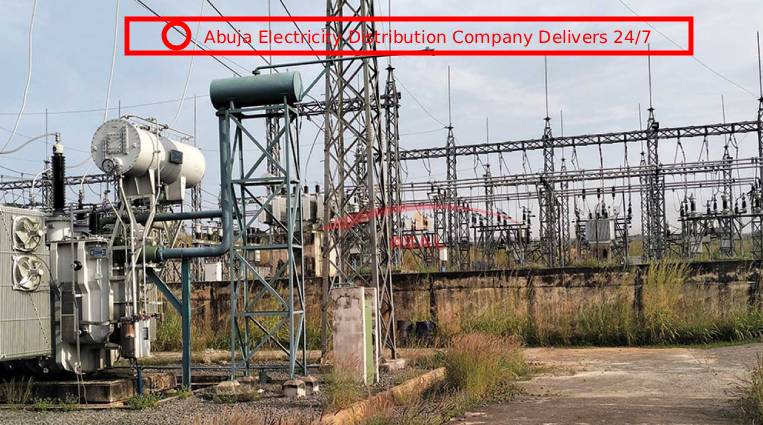Abuja Electricity Distribution Company Delivers 24/7 Power, Boosting Businesses and Inspiring Nationwide Improvements

Abuja’s power story is starting to feel like the moment a shōnen hero finally unlocks a new form—steady, bright, and long overdue. The Abuja Electricity Distribution Company (AEDC) has quietly rolled out service improvements that many business owners in select estates are describing as game-changing. In several neighborhoods across the capital, shopfronts glow through the night, bakeries keep ovens humming, salons run dryers without pausing, and tailors stitch past midnight without the constant dread of a generator sputter. The headline is simple but powerful: 24/7 electricity, delivered consistently enough that residents are beginning to plan with confidence instead of contingency.
What makes this shift meaningful is not just the lights staying on—it’s the chain reaction it sparks. Restaurants are extending hours because cold rooms are truly cold. Printing presses no longer pause mid-job. Pharmacies keep fridges stable for sensitive supplies. Even small gaming lounges report fuller evenings and safer, brighter walkways for customers. In a city where diesel receipts used to feel like boss-level enemies, the math is changing. Several business owners say their monthly energy costs have dropped, and the money they once poured into fuel and repairs is being redirected into inventory, salaries, and upgrades.
Reliability is the real plot twist. Entrepreneurs in the affected estates describe a pattern of consistent voltage, fewer flickers, and faster restoration whenever faults occur. That last detail matters. Anyone who has lived through the random blackouts knows the difference between power that is available and power that feels trustworthy. The current experience—predictable supply, responsive support—has turned electricity from a gamble into an infrastructure you can build a business around.
Credit, of course, is shared. AEDC says it has invested in network rehabilitation, targeted feeder upgrades, improved metering, and tighter coordination with transmission partners. Residents have noticed the quieter streets—fewer generators clanging, fewer fumes at dusk. Local security outfits even note better visibility at night, which helps foot traffic and reduces the risk of after-hours operations. It’s a subtle but potent quality-of-life rise: neon signs stay lit, CCTV feeds don’t blink, and evening markets feel more welcoming.
The ripple reaches homes too. Parents say homework runs smoother, fans stay on during heat spikes, and weekend laundry doesn’t depend on the neighbor’s gen. Freelancers who edit videos, design graphics, or code late into the night describe a new freedom: deadlines are met without juggling power schedules. For students prepping for exams, stable light turns revision into routine, not a mad scramble. It’s a different Abuja mood—less scramble, more stride.
From an anime fan’s lens, it’s like the support crew finally syncing with the protagonist at the crucial arc. When background systems level up, the heroes—here, ordinary citizens—can actually shine. That’s the charm of reliable electricity: it unlocks everyone else’s potential. You almost want to cheer when a tailor says she added two apprentices because late-night orders are now doable, or when a café explains their beans taste better because grinders don’t stall mid-brew.
Government voices, for their part, are framing this as a down payment on broader reform. Officials highlight that improved service in some Abuja estates is a template being readied for replication. The goal, they say, is to extend similar upgrades to other states through targeted investments and performance-tied contracts—awards that prioritize real outcomes such as uptime, load management, and customer response times. The language is optimistic: scale what works, reward excellence, and keep pressure on weak links in the chain. In practical terms, that could mean more feeders rehabilitated, smarter meters rolled out, and stricter service benchmarks for distribution companies in cities across the country.
The private sector is taking note. Co-working spaces are scouting locations in estates where power has proven steady. Cold-chain logistics firms—always allergic to uncertainty—are testing new routes and storage points within the city. Event planners who used to factor in diesel surcharges are recalibrating budgets, which can make community events, book fairs, and weekend markets more affordable and lively. If this momentum holds, it could nudge Abuja further into the “work-late, play-safe” rhythm of a capital that attracts talent and investment.
None of this erases the need for vigilance. Sustaining 24/7 supply requires discipline: preventative maintenance, honest metering, fast fault isolation, and communication that respects customers. Business owners aren’t asking for miracles; they want the current performance to become the norm, with transparent schedules for planned outages and quick, well-explained fixes when surprises happen. Trust deepens when users feel informed, not stranded.
Still, the human moments keep stacking up. A barber recounts running full days without stopping clippers to fuel up. A print shop owner says the hum in her workspace is “electricity only”—a sentence that reads like poetry in a city once defined by generator drone. A café manager laughs that the most popular seat is now the window table, not the one next to the few precious sockets. These are small wins, but together they tell a larger story: stability breeds creativity.
For Abuja, the current arc is hopeful. AEDC’s improvements in select estates have shown what consistent power can do for commerce, safety, and daily life. The government’s message—that similar performance can be awarded, scaled, and enforced in other states—adds momentum and accountability to the mix. If that promise translates into policy and practice, Nigeria’s cities could unlock a wave of productivity that outlives any single news cycle.
For now, the lights are on, the engines are quieter, and the night feels open for business. It’s not the finale—more like a mid-season surge—but it’s the kind of episode that keeps people watching, working, and believing the next scene can be brighter still.


